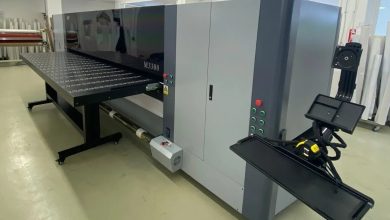Unlocking the Future with IoT Software Development Services

In today’s fast-paced digital age, the Internet of Things (IoT) has emerged as a groundbreaking technology, transforming industries and enhancing everyday life. Central to this revolution are IoT software development services, which empower businesses to harness the full potential of interconnected devices. By leveraging these services, companies can innovate, optimize operations, and stay ahead in an increasingly competitive market.
Understanding IoT Software Development
IoT software development involves creating applications and platforms that enable devices to communicate, collect data, and perform specific functions seamlessly. This process is integral to the IoT ecosystem, ensuring that hardware and software work together harmoniously. From smart homes to industrial automation, IoT software development services are the backbone of various innovative solutions that are reshaping the world.
Key Components of IoT Software Development
- Device Connectivity: Ensuring robust communication between devices through protocols like Wi-Fi, Bluetooth, Zigbee, and more.
- Data Management: Efficiently handling vast amounts of data generated by IoT devices, ensuring storage, processing, and analysis.
- Security: Implementing stringent security measures to protect data and devices from cyber threats.
- User Interface: Designing intuitive interfaces for users to interact with IoT devices effortlessly.
- Integration: Seamlessly integrating IoT solutions with existing systems and software.
Benefits of IoT Software Development Services
Enhanced Operational Efficiency
One of the most significant advantages of IoT software development services is the improvement in operational efficiency. By automating processes and providing real-time data insights, businesses can streamline operations, reduce downtime, and optimize resource utilization. For instance, in manufacturing, IoT solutions can predict equipment failures, allowing for proactive maintenance and minimizing production halts.
Improved Customer Experience
IoT solutions offer personalized and enhanced experiences for customers. Smart devices can anticipate user needs, providing tailored services and improving satisfaction. For example, smart home systems can learn user preferences, adjusting lighting, temperature, and security settings automatically, offering a seamless and convenient lifestyle.
Data-Driven Decision Making
The ability to collect and analyze data in real-time is a game-changer for businesses. IoT software development services enable organizations to make informed decisions based on actionable insights. Retailers can track inventory levels, monitor customer behavior, and adjust marketing strategies accordingly. Similarly, logistics companies can optimize routes and delivery schedules, reducing costs and improving service quality.
Innovation and Competitive Edge
Embracing IoT technology fosters innovation, allowing businesses to develop new products and services. By staying at the forefront of technological advancements, companies can gain a competitive edge. IoT-driven solutions can also open up new revenue streams, such as subscription-based models for smart devices or data analytics services.
Challenges in IoT Software Development
Security Concerns
With the increasing number of connected devices, security remains a top priority. Protecting sensitive data and ensuring the integrity of IoT systems is crucial. Developers must implement robust encryption, authentication, and access control measures to safeguard against cyber threats.
Interoperability
IoT ecosystems often involve diverse devices and platforms. Ensuring seamless communication and interoperability between these components can be challenging. Standardizing protocols and interfaces is essential to overcome this hurdle.
Scalability
As IoT deployments grow, scalability becomes a critical consideration. IoT software must handle increasing volumes of data and devices without compromising performance. Scalable architectures and cloud-based solutions can address this challenge effectively.
Privacy Concerns
The vast amount of data generated by IoT devices raises privacy concerns. Ensuring compliance with data protection regulations and implementing privacy-by-design principles are vital to building user trust and avoiding legal issues.
Future Trends in IoT Software Development
Edge Computing
Edge computing is gaining traction as it brings computation and data storage closer to the source of data generation. This approach reduces latency, enhances data processing speeds, and improves overall system performance. IoT software development services are increasingly incorporating edge computing to enable real-time analytics and decision-making.
Artificial Intelligence and Machine Learning
Integrating AI and machine learning into IoT solutions is revolutionizing how devices operate and interact. These technologies enable predictive maintenance, anomaly detection, and automated responses, enhancing the efficiency and intelligence of IoT systems.
5G Technology
The rollout of 5G networks is set to accelerate IoT adoption by providing faster and more reliable connectivity. With higher bandwidth and lower latency, 5G will support a massive number of IoT devices, enabling more complex and data-intensive applications.
Blockchain
Blockchain technology offers enhanced security and transparency for IoT ecosystems. By providing a decentralized and tamper-proof ledger, blockchain can address security and privacy concerns, ensuring data integrity and trust in IoT networks.
Conclusion
The transformative potential of IoT software development services cannot be overstated. From enhancing operational efficiency to driving innovation, these services are crucial for businesses looking to stay competitive in a rapidly evolving digital landscape. As technology continues to advance, embracing IoT solutions will be key to unlocking new opportunities and achieving sustainable growth.
For more interesting blogs click here.



